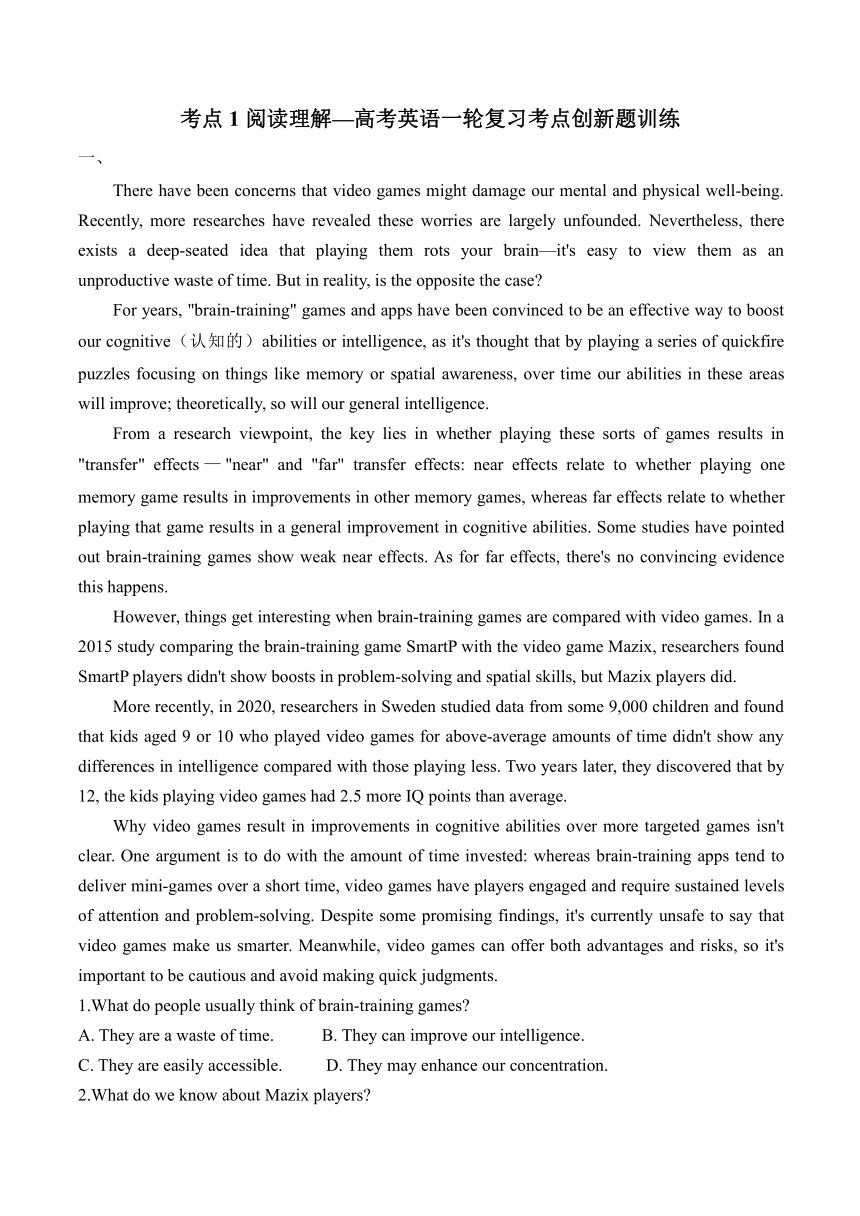
考点1 阅读理解—高考英语一轮复习考点创新题训练 一、 There have been concerns that video games might damage our mental and physical well-being. Recently, more researches have revealed these worries are largely unfounded. Nevertheless, there exists a deep-seated idea that playing them rots your brain—it's easy to view them as an unproductive waste of time. But in reality, is the opposite the case For years, "brain-training" games and apps have been convinced to be an effective way to boost our cognitive(认知的)abilities or intelligence, as it's thought that by playing a series of quickfire puzzles focusing on things like memory or spatial awareness, over time our abilities in these areas will improve; theoretically, so will our general intelligence. From a research viewpoint, the key lies in whether playing these sorts of games results in "transfer" effects—"near" and "far" transfer effects: near effects relate to whether playing one memory game results in improvements in other memory games, whereas far effects relate to whether playing that game results in a general improvement in cognitive abilities. Some studies have pointed out brain-training games show weak near effects. As for far effects, there's no convincing evidence this happens. However, things get interesting when brain-training games are compared with video games. In a 2015 study comparing the brain-training game SmartP with the video game Mazix, researchers found SmartP players didn't show boosts in problem-solving and spatial skills, but Mazix players did. More recently, in 2020, researchers in Sweden studied data from some 9,000 children and found that kids aged 9 or 10 who played video games for above-average amounts of time didn't show any differences in intelligence compared with those playing less. Two years later, they discovered that by 12, the kids playing video games had 2.5 more IQ points than average. Why video games result in improvements in cognitive abilities over more targeted games isn't clear. One argument is to do with the amount of time invested: whereas brain-training apps tend to deliver mini-games over a short time, video games have players engaged and require sustained levels of attention and problem-solving. Despite some promising findings, it's currently unsafe to say that video games make us smarter. Meanwhile, video games can offer both advantages and risks, so it's important to be cautious and avoid making quick judgments. 1.What do people usually think of brain-training games A. They are a waste of time. B. They can improve our intelligence. C. They are easily accessible. D. They may enhance our concentration. 2.What do we know about Mazix players A. They demonstrated signs of far effects. B. They had a great talent for video games. C. They exhibited boosts in gaming skills. D. They proved the importance of near effects. 3.What does the study in 2020 reveal A. The limited effects of age on IQ points. B. The negative impacts of video games. C. The adva ... ...
~~ 您好,已阅读到文档的结尾了 ~~

